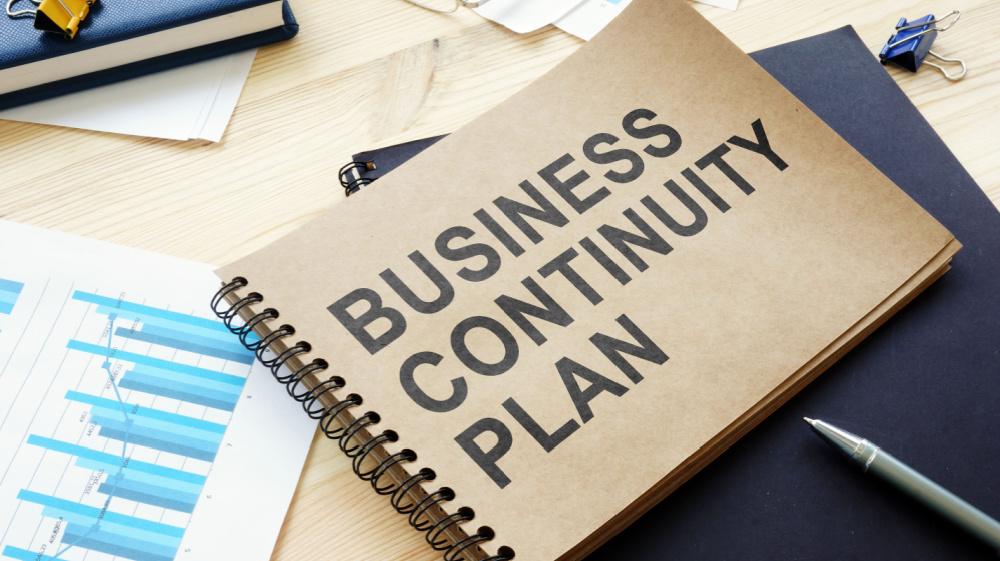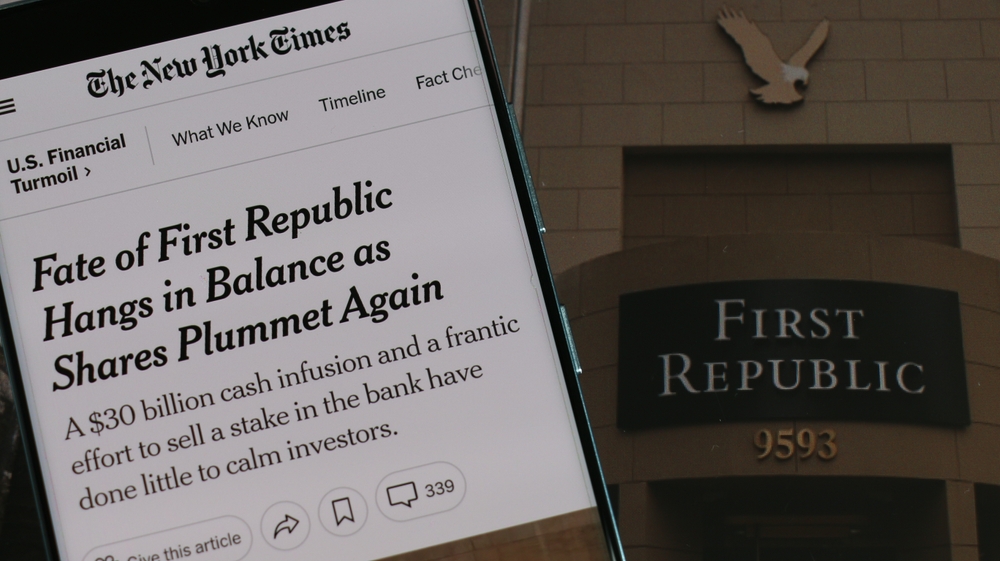Reputational Benefits of Having a Sound Business Continuity Plan and Disaster Recovery Strategy

In today’s faced-paced and highly motivated court of public opinion, having a robust continuity plan and/or disaster recovery strategy is crucial. We have been mentioning to clients for nearly 15 years – “it’s not a matter of if, but when a crisis will occur.” In our tenured experience, those who take a proactive approach and prepare for smoldering and sudden events have proven to have better growth results when issues arise. on the following are the key areas of importance highlighting why having sound recovery strategies is vital for organizations – we refer to the communications component as a Crisis Communications Algorithm. Businesses must invest time, effort, and resources in creating and implementing these vital plans. Why? Minimize Downtime: When faced with a crisis, whether litigation, investigation, social-media attack, cyber-attack, global pandemic, etc., businesses without a continuity plan often scramble to respond effectively. By having a well-designed strategy in place, companies can minimize downtime and disruptions to their operations, ensuring a prompt recovery and uninterrupted provision of goods and services. We call this ‘Organizational Muscle Memory.’ Protect Revenue Streams: Crises have and will continue to impact a company’s valuation. Without a continuity plan, businesses risk a breakdown in their supply chains, a halt in customer transactions, or the inability to communicate with clients, leading to financial losses and funding withdrawals, which can be difficult to recover from. Implementing a solid crisis plan helps safeguard revenue streams and significant financial setbacks. Companies must protect valuation as crisis cost time, money consumer trust, careers, and in the worst case scenarios, freedom and lives. Safeguard Customer Confidence: Maintaining trust and consumer confidence is crucial for any organization. Stakeholder loyalty can be tested, especially if businesses fail to meet customer expectations due to a lack of preparedness. A well-executed continuity plan helps organizations manage potential disruptions effectively, enabling them to communicate transparently with clients and consumers, minimize service interruptions, and consistently while meeting their customers’ needs. Compliance with Legal and Regulatory Requirements: Numerous industries are subject to legal and regulatory compliance measures that necessitate establishing a disaster recovery plan. Failing to do so can result in financial and legal repercussions. By creating a disaster recovery strategy, businesses will comply with industry regulations, avoid penalties, and ultimately protect their reputation. Protect Data and Information: In today’s digital age, where cyber threats are rampant, having a disaster recovery plan that includes redundancy, data backup, and protection measures is essential. Businesses store vast amounts of critical data, including customer information, financial records, and intellectual property. It’s crucial to have a disaster recovery plan in place to safeguard your customer feedback platform and other vital assets. By having a comprehensive strategy in place, companies can ensure the integrity and availability of their data, even in the face of cyber-attacks, hardware failures, or natural disasters. Maintain Employee Safety and Well-being: Disasters not only affect a business’s operational side but also impact its employee safety and well-being. A well-prepared continuity plan should prioritize employee safety, outlining protocols for evacuation, communication, and overall crisis response. By providing a safe environment and addressing employee needs during and after a disaster, businesses can retain valuable talent and foster a sense of security among their workforce. Remember, the first order of leadership is to provide a safe place to live, work and raise a family. It’s Worth the Investment: The importance of having a continuity plan and disaster recovery strategy cannot be overstated. These plans not only protect businesses from financial losses and legal liabilities but also ensure the well-being of employees while maintaining customer trust. In today’s rapidly changing world, organizations must invest in preparing for various disasters, resulting in a resilient business that can weather any storm. Contact Fallston Group to learn more; info@fallstongroup.com.
The Baltimore Orioles’ Winning Principles: Lessons from The Oriole Way

The Baltimore Orioles’ Winning Principles: Lessons from The Oriole Way In the world of sports, the Baltimore Orioles have stood out in 2023 not just for their turnaround winning record but also for the culture they have built around their success. At the heart of their achievements lies The Oriole Way, a set of principles established by Cal Ripken Sr. that has become synonymous with the franchise. These principles serve as invaluable lessons for corporations seeking to excel in their industries. From strategic player acquisitions to a strong emphasis on teamwork, the Orioles’ winning culture, rooted in The Oriole Way, showcases principles that can be applied to corporate settings. In this blog, we explore these principles and how they can drive corporate success. Strategic Player Acquisitions: The Oriole Way places great importance on strategic player acquisitions. Cal Ripken Sr. believed in carefully assessing the skills, character, and potential of individuals to build a strong team. This principle applies to corporations as well. To succeed, companies must be diligent in acquiring talent that aligns with their values and long-term goals. Investing in the right people from the start sets the stage for future success. Player Development: Cal Ripken Sr. and The Oriole Way emphasized the development of players. They believed in nurturing young talents and providing them with guidance and opportunities to grow. In the corporate world, this principle is equally important. Companies should prioritize investing in their employee’s professional growth, offering mentorship, training programs, and a supportive environment that encourages personal and career development. A commitment to employee development leads to a skilled and motivated workforce. Emphasis on Teamwork: Placing a strong emphasis on teamwork and collaboration, Cal Ripken Sr. believed that success on the field was a collective effort. Similarly, in the corporate world, fostering a culture of teamwork is essential. Encouraging collaboration, effective communication, and creating cross-functional teams can lead to improved productivity, innovation, and problem-solving. Unwavering Work Ethic & Determination: The Oriole Way instilled a strong work ethic and determination in its players. Cal Ripken Sr. believed in giving 100% effort and never settling for mediocrity. This principle holds true for corporations as well. Companies should encourage a strong work ethic and a culture of perseverance. Embracing challenges, maintaining a positive attitude, and striving for excellence are vital for long-term success. Leadership at All Levels: Recognizing the importance of leadership at all levels of the organization, Cal Ripken Sr. believed that leadership should not be limited to a few individuals but should permeate the entire team. Corporations can learn from this principle by nurturing leadership qualities in their employees. Encouraging individuals to take initiative, lead by example, and develop their leadership skills creates a culture of empowerment and accountability. The bottom line – own your space! The Baltimore Orioles’ winning culture in 2023 is deeply rooted in The Oriole Way. These principles of strategic player acquisitions, player development, teamwork, work ethic, and leadership offer valuable insights for corporations aiming to achieve excellence. By embracing these tenents, companies can foster a culture that values diligence, collaboration, continuous improvement, and effective leadership. Incorporating these principles into their corporate DNA sets the stage for long-term success and growth, just as it has for the Baltimore Orioles. As we embrace The Oriole Way, we embark on a journey of achieving greatness, both on and off the field. Now, Let’s Go O’s!
Trust and the Media: The Problems & Potential Solutions

Trust and the Media: The Problems & Potential Solutions It began with another eye roll. In a meeting, I mentioned my background as a journalist, and I sensed the smirky reactions. When I first started in the news industry more than 30 years ago, people were excited to hear about what stories I was covering and what famous people I may have met. But times have changed. Now journalists face constant skepticism and allegations about ‘fake news.’ I left the TV Industry four years ago, and I am currently a communications strategist who cringes whenever someone tells me what is wrong with the news industry. Here’s WHY: Many hardworking, honest, fair, empathetic, and fact-driven journalists do great work in their communities, but there are certainly others who have tarnished the industry’s reputation. Yes, it’s cringeworthy to all of us who care deeply about our profession. THE PROBLEM The problem is that there is a strong narrative that journalists are “the enemy.” Admittedly, there is strong evidence concerning how trust in the news industry has disintegrated over time. A 1974 Gallup poll found that 74% of Americans had a great deal/fair amount of trust in mass media. Fast forward almost 50 years, and that number is cut in half. A Gallup Poll taken in October 2022 finds that only 34% of Americans have a great deal/fair amount of trust in mass media. That’s cringeworthy. Many factors play a role in the news media’s decline in trust. For example, the lines between news, entertainment, and commentary began to blur when cable news gained popularity. The definitive border between fact and opinion must be clarified. There are also numerous people/sites on every digital platform that define themselves as news sources. However, it needs to be made clear what credentials the reporter or news outlets have and what ethics they follow when reporting. Still, Pew Research found in a poll taken last Fall, that U.S. adults under 30 now trust information from social media almost as much as national news outlets. THE SOLUTION The solution is simple: you build trust through honesty. Transparency is crucial right now because trust is so fragile. For journalists, the best way to build trust with an audience is to explain WHY you are following a story and HOW you ended up with the conclusions you are reporting. Journalists need to double-check facts with objective, supportive data. Journalists need to double-check sources too. This is a time when it seems anyone can say anything, so it’s important to make sure any source you use is legitimate and without bias. Finally, journalists need to ask themselves: Did I eliminate any self and source-bias when formulating the story? Was I objective with my line of questioning? Am I holding the right people accountable? Is the story accurate and objective? Did I include all sides of the story? Did I double-check my data and facts? Do I show multiple viewpoints? Have I explained WHY the story impacts the community? Have I included the ‘what’s next’ factor? (sometimes referred to as the ‘moving forward’ factor)? If a mistake is made, have I adequately corrected it in the same forum? When I was a journalist and faced a complex story, I liked to use a ‘Process Journalism’ technique to help show the ‘why’ and ‘how’ behind a story. The story would take the viewer on a journey of discovery, as the facts are uncovered and why one interview may have prompted another interview from other sources. ‘Process Journalism’ describes the investigative development that led to the story’s conclusion. Process Journalism is one methodical way to tell stories that could help build the trust factor for viewers. Politics have also weighed heavily on the need for more trust components for journalists. Too often, an audience only wants to hear its own viewpoints mimicked in the news. Journalists must accurately and objectively show all points of view to avoid placating any particular views while keeping their opinions at bay. Many journalists are trying to make progress toward building trust and turn to Radio Television Digital News Association (RTDNA) for guidance on navigating this uphill battle. RTDNA and Magid have created a more complete roadmap for newsrooms to use as guidelines. For example, RTDNA recommends that “journalists be knowledgeable about the local community and what issues are important to local news consumers,” as well as “authentic and genuine” in their coverage. For any working journalist, I suggest they keep a copy handy on their office desk or front seat! Again, many hardworking, honest, fair, empathetic, and fact-driven journalists are doing great work in their communities. Let’s give those deserving journalists a chance to win back your trust while telling your stories. Sources https://news.gallup.com/poll/403166/americans-trust-media-remains-near-record-low.aspx https://www.pewresearch.org/short-reads/2022/10/27/u-s-adults-under-30-now-trust-information-from-social-media-almost-as-much-as-from-national-news-outlets/ https://assets-002.noviams.com/novi-file-uploads/rtdna/Trust_in_Journalism_Project/RTDNATrust-Research-FINAL.pdf
First Republic Bank: Highlighting the Importance of Risk Management

The recent collapse of First Republic Bank is another example highlighting the importance for business leaders to be uber-predictive and ongoing practitioners of risk management. This process should be embedded into their operations to protect their brand, valuation, and customers. The seeds of First Republic’s failure were sown years ago when their strategy was developed to focus on wealthy clients by offering rock-bottom interest-only jumbo mortgages as a key means to get those clients to accumulate assets in the bank. Due to widespread banking industry concerns, First Republic Bank needed cash to cover clients withdrawing their money from the bank. Their mortgage loans were of little value to generate cash in the current higher interest rate marketplace. If First Republic Bank was thinking about risk management as part of its ongoing practices, its leadership would have considered how to deal with future rising interest rate risks. Taking a longer-term view of possible future financial market scenarios may have helped guide them to a better-informed strategy and avoid this collapse. Sadly, the effects of the First Republic Bank’s failure impact many….employees losing their jobs, shareholders losing their investment, and senior leaders losing their positions – everyone’s reputation is impacted. Their reputational piggy bank is now sustaining many withdrawals. Risks for businesses come from many different sources – financial, legal, environmental, operational, and reputational are just some major areas to consider. A sound business management process for leaders is routinely conducting risk assessments while considering the possible scenarios in a fluid marketplace. This is one of the key roles of leaders….to understand possible business risks and take actions to manage those risks appropriately to ensure the longevity and valuation of the enterprise. This way, banks can turn short-term adversity into a long-term marketplace advantage.
Bud Light Backlash – Perspective from Fallston Group’s Chief Executive, on The National Desk

“Crises cost time, money, consumer confidence, and careers and generally in that order,” said Rob Weinhold, a crisis leadership expert and chief executive for the Fallston Group. “And I think as the groundswell continues to grow and valuation decreases, I think it would behoove Anheuser Busch to get out in the court of public opinion and further explain what their longer-term strategy is. And the bottom line is they have to strike the balance between appealing to their existing customer base and then where they want to go generationally as a business,” Weinhold continued. He said in this day and age, brand executives have to have a predictive mindset to understand the consequences of their actions. Please read the full article here
The Coxswain Metaphor – A Lesson from the Ultimate Team Sport

In the stern of every 4- and 8-oared rowing shell sits a person called the coxswain. This person is the brains behind the brawn; the on-water coach; the decision-maker; the leader. This person is responsible for race strategy, the safety of the crew and equipment, and ultimately, for ensuring that every single rower knows exactly what to do and when to do it. The coxswain, not coincidentally, is the only person facing the direction the boat is moving: forward. From the moment the crew puts hands on the boat, the coxswain is in charge. The crew places the highest level of trust in the coxswain, understanding the importance of their role in contributing to the whole. Every individual is incredibly important– the sum of everyone is exponentially greater than any one person. If one person, for one second, loses focus or misses a call, accidents happen, people get hurt, equipment can break, and races are lost. Great coxswains (like great crisis leaders) are part visionary, part strategist, part coach and always operating within a predictive mindset and factoring each nuance. In any crisis, it only takes one action or incident, sometimes deceivingly minor, to derail an organization. At the moment a crisis occurs on the water, the leadership of the coxswain becomes even more important; the crew always knows whom to follow. When a crisis occurs in your organization, do you have a coxswain? Does your crew know where to look for leadership guidance, strategy, tactics and recovery? Do you have someone that is “facing forward” and can see the big picture from the outside? Imagine trying to move a 60-foot racing shell forward, while facing backwards, continuing to row, coordinating everyone else in your boat and constantly turning around to see if you’re going to hit something. You can’t do it. It’s no different than trying to handle a crisis that is happening in your own organization without independent crisis leadership. On the water, in an office or within our personal lives, something eventually happens that will throw the whole crew off balance, off course and threaten to sink the boat. Crisis management is important because it isn’t whether or not the event that happens is large or small but the ripple effect and how it is managed and contained. Rowing is one of the most beautiful sports to watch; from a distance, a synchronized crew looks flawless, its minor mistakes not visible to those on shore. It is analogous to your company’s reputation. Outsiders don’t see or know every nuance or issue that occurs “in the boat.” But before a crisis occurs and it affects reputation—how the outside world perceives your organization—the smartest thing you can do is assemble a confident, capable, and highly experienced crisis leadership team who will get your crew rowing smoothly again, in the right direction.
Organizational Muscle Memory Saved Damar Hamlin’s Life

Cal Ripken, Sr., widely known as the professional ballplayer turned coach who created The Oriole Way, joined Major League Baseball’s Baltimore Orioles as a minor league ballplayer in 1957. He went on to coach, spending 36 years with the organization. Of the many “Seniorism” phrases I’ve heard from Cal Jr. & Bill Ripken, the one that most resonates with me is “Practice doesn’t make perfect. Perfect practice makes perfect.” I never thought of it that way, but Cal Sr. was right. Another mantra floating around the universe is “Amateurs Practice Until They Get It Right; Professionals Practice Until They Can’t Get It Wrong.” While hard to find appropriate attribution, this phraseology also shaped my thinking as it takes optimal performance to another level. Whether a musical performer, professional golfer, or keynote speaker whose livelihood depends on making audiences think, feel and act differently, true pros relentlessly rehearse, so they are ready to meet the moment. Let’s take it one step further when lives are undoubtedly on the line. My Dad was a U.S. Army Airborne Ranger who found himself in numerous jungle warzones during his career. Part of the Ranger Creed reads, “Never shall I fail my comrades. I will always keep myself mentally alert, physically strong, and morally straight, and I will shoulder more than my share of the task whatever it may be, one-hundred-percent and then some.” When I reflect upon these core beliefs, the following comes to mind: Commitment Excellence Ownership Winning What looked like a routine tackle as millions tuned into that week’s Monday Night Football game quickly escalated into a life-or-death moment. The National Football League’s Buffalo Bills Assistant Trainer Denny Kellington’s quick and decisive actions saved Buffalo Bills safety Damar Hamlin’s life on January 2nd. Kellington administered CPR and is credited by many for saving Hamlin’s life and preserving his cognitive health. Simply put, Denny Kellington is a hero. How did Kellington so effectively spring into action at 8:55p that horrific night? Unquestionably, the 30 minutes he and others who cared for Hamlin during that crisis positively changed the trajectory of many lives. From the training staff to first responders to coaches to the continuum of healthcare providers and many more, there are many to credit with Hamlin’s survival and remarkable progress. Point blank, Kellington did what he and his staff were trained to do. They didn’t feel their way through the situation, try to figure it out on the fly, look up a series of policies or protocols to see what to do next, or even phone other professionals for advice. They’ve been training for this moment for decades – Kellington recognized the situation, responded with conviction, and fully committed himself to Hamlin. Much like every NFL team has a playbook, so does the training staff – it’s called Organizational Muscle Memory. Whatever team you’re a part of, learn from Kellington. Be predictive, relentlessly train and always be ready to meet the moment…you never know who might need you during life’s most critical times. #lovefordamar
Southwest Airlines Fails to Close Vital Communications Gap

Southwest Airlines is in trouble, under federal investigation and the lead story on most traditional mainstream media news outlets. The real long-term crisis Southwest Airlines faces has nothing to do with the cold front that disrupted flights, caused computer glitches, or created staffing issues. Instead, the real crisis is the failure of leadership to communicate quickly and effectively to all of the micro communities that depended on Southwest Airlines, including all of its stranded and inconvenienced customers.. If Southwest had issued regular updates and explanations for the service disruptions, travelers could have planned accordingly. Instead, families are still stranded in airports without any plan of action – an issue which is costing them unnecessary amounts of time and money! Customers who have had flights canceled have been waiting online (or on hold) for hours to speak with or interact with a ticket agent who, in many cases, cannot provide alternative transportation and logistics courier for days, if not weeks. Additionally, customers say they have waited hours on phone calls to the 800-line only to find the next available flights aren’t until after the New Year. Let’s look at the Southwest Airlines communication timeline: The Southwest website issued this statement with no updates since the initial post: “Due to adverse weather events and their resulting effects, we are currently experiencing operational disruptions and are working diligently and safely to restore normal flight schedules as quickly as possible.” It is one very long sentence (30 words) with no direction given to travelers left stranded. On FACEBOOK: only one post (at 11:09 am EST Monday), with no updates: “We continue to experience high call and social inquiry volumes. Please check your flight status and explore self-service options”. (Southwest Airlines | Book Flights, Make Reservations & Plan a Trip). The FACEBOOK post has had 8.1K comments ranging from disappointment to outrage. On Twitter, the same message has been posted with no additional updates. If Southwest Airlines were issuing updates every hour, with information specific to each airport, travelers may still be grumpy but would be more understanding. Instead, travelers are left in the dark. Without the proper knowledge of how to proceed, frustration and anger escalate. The company’s mission statement is “to connect people to what’s important in their lives through friendly, reliable, and low-cost air travel.” The lack of reliability may hurt the company, but the lack of communication may prove most harmful to Southwest Airlines’ reputation in the long run. Remember, crises cost organizations time, money, customers and careers – Southwest Airlines has traveled nonstop down this trajectory of failure. Southwest Airlines executives must open the lines of communication quickly to offer empathy and explanations. Their actions will decide where the airlines’ image lands in 2023. Remember the general basics of the Resilient Moment Communications Model: What happened? What caused it? What are the short and long-term effects? What’s being done now? What’s being done, or what do we need to do, in the future? If Southwest Airlines quickly embraces this communications model, perhaps they can at least begin to build the trust they’ve already withdrawn from their reputational piggy bank!
The Power of Crisis Leadership: Protect Your Reputational Piggy Bank – Your Most Important Account

The critical importance and value of crisis leadership has perhaps never been more apparent than it has been during the past few years, as companies across the globe have felt the weight and impact of one societal crisis after another. Each and every time a leader delivers a message – be it a board meeting, media interview, keynote, community meeting, or social platform, their reputational piggy bank sees a light deposit or heavy withdraw. Thinking strategically about what the right message is and how it will resonate with many micro, diverse communities will help assure both your reputational and cash balance pays dividends over time. I’ve learned from so many incredible leaders who communicate spectacularly under duress. It is an art, not a science. The best communicators I know are obsessive about every syllable they utter, piece of clothing they wear, and message point they deliver. They’ve learned how to steer clear of organizational jargon, are detail-oriented and compassionately deliver messages in a conversational manner that quickly and emotionally connects with those who consume their words. They are analytical, well-timed and process loads of information, almost instantaneously. And they are never too high or too low – they have a steady hand under pressure no matter the gravity of the situation or tightness of deadline. They understand the big picture – it’s what they do best – see the whole room and move people to proper perspective, balance and action. Mishandled, crises will cost you time, money, stakeholder confidence, careers, and in the worst of scenarios, freedom and lives. Make no mistake about it, the decisions you make today will be judged by many for years to come. In my view, you don’t spin your way through crisis, you lead your way through. It’s not about shallow window dressing, it’s about long-term sustainable change. Real leaders emerge when the chips are down, and the stakes are at their highest. Let’s face it, anyone can lead when the sun is shining, profits are high and company culture is beaming. After decades of helping people during life’s most critical times, I’ve come to realize that crisis is not to be feared. In fact, crisis is a growth strategy. That’s right, a growth strategy, as counterintuitive as that may sound! Remember this…reputation leads to trust, and trust leads to valuation. YOUR reputation leads to trust and trust leads to valuation…and, not all currency is financial. I’ve had the privilege to critically advise leaders in large health care, academia, financial, legal, hospitality, and insurance organizations, along with many other public, private, government and nonprofit entities who are fighting for their futures. The key is to understand each organization’s navigational fix, where’d they like to be then chart the path forward using a deep well of instinct and experience. Make no mistake, crisis leadership is an art, not a science where every nuance counts, and a predictive mindset is a nonnegotiable asset. To illustrate, I’ve worked with those in the health care space on a myriad of issues, including accusations of patient dumping, mismanagement, sexual harassment accusations and medical malpractice claims, to name a few. There is no shortage of issues to contend with in this industry, and many are insured by captive insurance companies. Generally, those filing claim will lay their case out with an aggressive demand for settlement. Layered into the claim is often the subtly veiled or overt threat of “going public” if the demands are not met. At that point, the health care client, and their legal/risk teams, have a decision to make – do we settle and avoid the court of public opinion or risk reputational damage for the sake (1) saving dollars and/or (2) doing what’s right. This is a tricky balance as the court of public opinion weighs heavily in favor of the plaintiff as their legal team is often first to market, putting the health care organization on defense. Many types of entities evaluate this type of risk while the vice tightens. To manage this dynamic, the forward-thinking legal teams I’ve worked with quickly engage to conduct an analysis of this treacherous traditional and digital landscape – the who, what, where, when, why and how of storytelling – in other words, how will the story land on varying media platforms to the varying micro-audiences who care, and what impact will the news have. Concurrently, there is a ton of due diligence to ensure all of the facts are known; spokespersons are identified and trained; ambassadors, detractors and influencers are accounted for; media market is sized-up and executive alignment is in tow, to name a few dynamics. This is literally a real-time chess game whereby filings or press conferences can occur at any moment. A few critical tips to ensure your reputational piggy bank continues to overflow: Never erode your integrity. Misinformation breeds distrust. There can be an immense pressure to “make your organization look good.” Many want you to press your nose up against the ethical window of truth and transparency. Do not cave into others who would like you to lie, distort the truth or leave vital facts behind which alter messaging and perception—this is tantamount to a lie. Once lost, you will never fully restore your integrity. Be relevant. As the art of traditional and digital press relations evolves within a changing worldwide media landscape, I hear about more and more leaders not returning reporter calls, delaying the release of information and simply refusing to feed the “media monster.” If you choose to stick your head in the sand and not respond, you quickly make yourself irrelevant and ineffective. Remember my mantra, “If you don’t tell your story, someone else will. And, when someone else tells your story, it certainly won’t be the story you want told.” Know the facts. A common mistake of many who speak publicly revolves around not fully preparing and gaining a sound understanding of the facts before articulating their position. Too many times I have seen professionals jump out
Be the Lighthouse or Its Reflection

During a recent trip to Gloucester (MA), I snapped this photo of the Thacher Island Twin Lighthouses while traveling by sea north toward the Gulf of Maine while doing a little whale watching. That said, there is nothing ‘little’ about whale watching as humpback whale calves are generally 14 feet long and 1500 pounds at birth! A story for another day. According to a few sources, the Thacher Island lighthouses were constructed in 1861 and are 124 feet high, 22 feet in diameter and have 156 steps to the top of the towers. Each are constructed with 10 tons of granite block with 2 feet thick inner walls. Each lighthouse, daily, withstands rigorous weather elements and serves as a critical navigational point through its steady presence and beacon of light. What about your own life? Who serves as your lighthouse, metaphorically speaking? Think about the attributes of a lighthouse and how many times one is depended upon for guidance – during the day and at night…when it’s sunny, cloudy, windy or raining. Who withstands the storms of life yet maintains a sense of beauty, dependability and resilience? Whose light do you depend upon during calm and tough times – while navigating issues of sensitivity, adversity and crisis? It does not matter the velocity or ferociousness of the situation, the lighthouse maintains its ground, purpose and posture in any crisis. Reflections: Who serves as your lighthouse? Who views you as their lighthouse? What are you doing to thicken your walls and brighten your light? There are two ways to lead during critical times – be the source of the light or reflect the light from another source – both are critical and needed to protect people, secure assets and strengthen brands. Back to the reflections: (1) thank them; (2) know them; (3) be the beacon.
